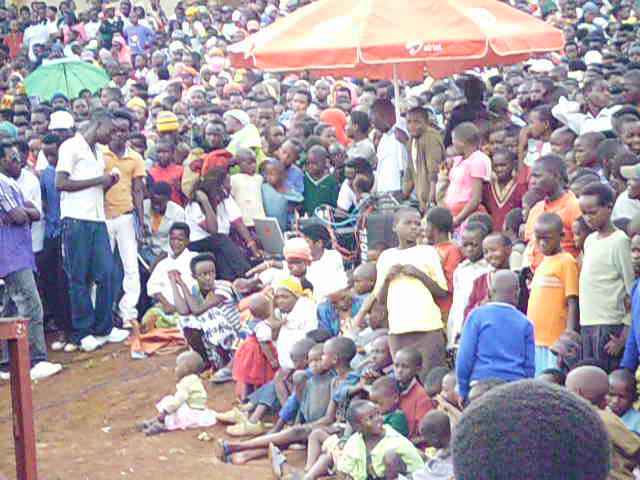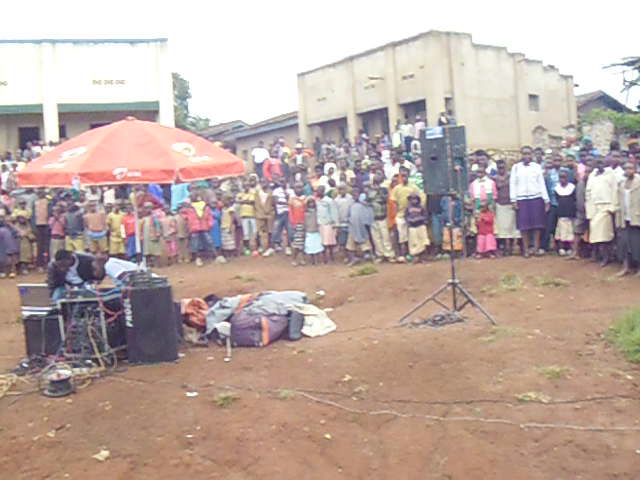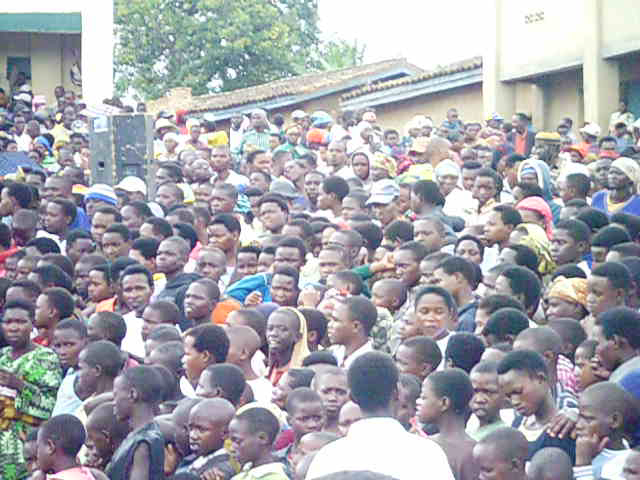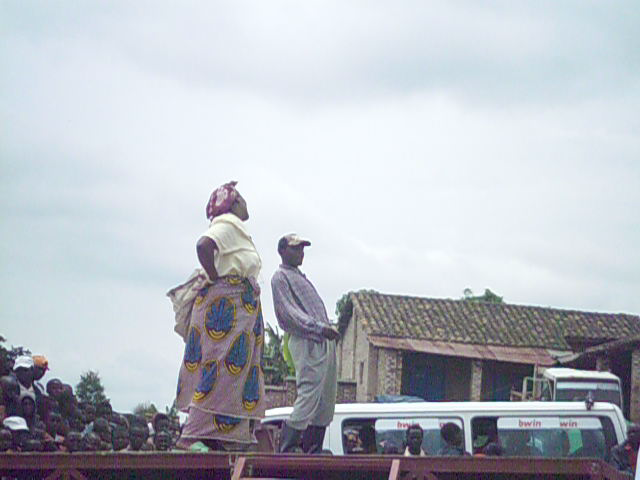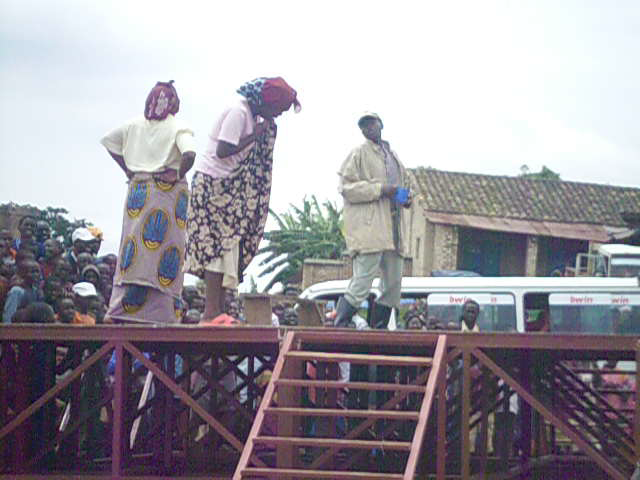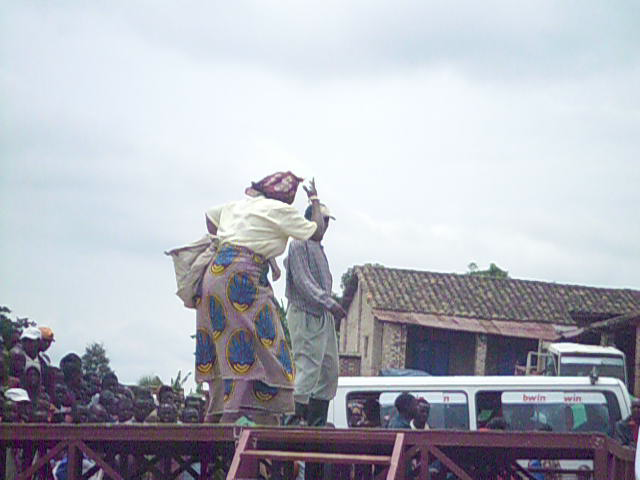World Water Day is held annually on March 22nd to recognize the importance of water in our world and advocate for the sustainable management of water resources. SALTWASH (Saving lives through water sanitation and hygiene) in Nyaruguru district is a project of Health Poverty Action. We celebrated World Water Day at Raranzige cell, Rusenge sector. The theme of the day was “Let’s join hands to promote construction and repairing of springs in order to access clean water.”
Community members watching and listening to messages and skits from”urunana” soap opera on hygiene and sanitation.
SALTWASH works with vulnerable communities in seven sectors of Nyaruguru district to address unique water challenges in locally appropriate and innovative ways. With the help of members, we plan to start construction of water springs so that the community may have access to clean water.
On this particular day, we had the opportunity to teach the importance of managing water resources. When there is no proper management of water resources, diseases may arise, such as diarrhea, bilharzia, cholera, dysentery, typhoid fever, intestinal worms and other waterborne diseases. These diseases disable and debilitate victims, keeping children out of school and preventing parents from working. We should all join hands to fight these diseases because of the horrific impact they have on poor communities, especially children, since they can be prevented.
These lessons were taught through theatre performances by a famous Rwanda radio soap, “urunana,” who provides teachings twice a week on radio Rwanda and BBC focused on sexual and reproductive health. The show’s actors attracted so many people, as most of them were curious to see the actors that they hear on radio, with their own eyes. There was so much excitement, especially among youth. Most of them wanted to stand in front so that they can get a good sight and clear view of the theaters. There was also music, which attracted people from all over the neighborhood.
”Urunana” performig a skit on hygiene and sanitation.
One of the skits was about a family in the village and their daughter. The family would send their daughter to fetch water and she would drink the dirty water from rivers and lakes. The family never bothered to boil drinking water and also stored the water in dirty containers. One day, the daughter became sick. She started vommitting, felt weak, and could not go to school. The parents thought that she was bewitched by her neighbors and took her to a traditional healer. He gave them some herbs and told them that she was bewitched by neighbors who did not like them. After taking the herbs, she became even more sick each day. One morning, a community health worker was visiting homes in villages and came to their home. She found the daughter was very sick and in pain. She quickly told the mother that they should take her to the nearby health center, but she refused saying that she was bewitched. The commnuity health worker insisted and they finally took her to the health center. She was then transferred to the hospital because her pain was so severe. She was suffering from typhoid fever and was admitted to the hospital for some days and later recovered. The community health worker taught the family about the bad effects of drinking dirty water. With continued follow up, the family learned how to boil and store drinking water safely.
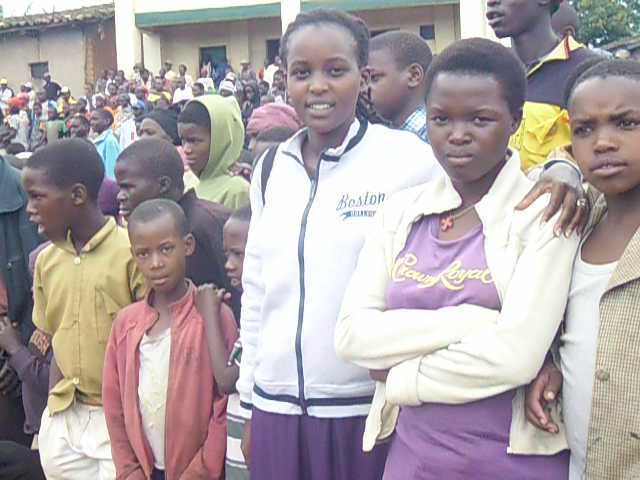 Me with young people watching the famous ”urunna” performing a skit.
Me with young people watching the famous ”urunna” performing a skit.
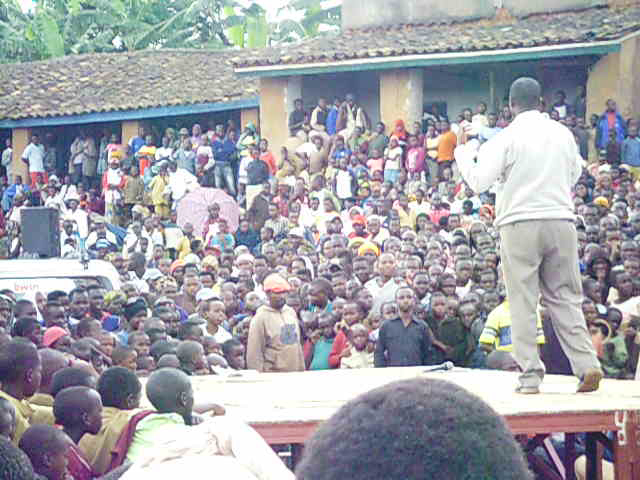 SALTWASH manager addressing the community members.
SALTWASH manager addressing the community members.
The official event in Nyaruguru ended with asking the community members the lessons they learned from the speeches and skits played by ‘’urunana’ soap opera. Many people answered them correctly. Those who answered all the questions well were given presents of different T-shirts of SALTWASH projects and they were motivated. Different members said they will try to put into practice what they learned that day such as washing hands with soap and clean water before eating, before preparing meals, before breast feeding for nursing mothers, after visiting the toilet and after cleaning babies. They also promised to boil drinking water and to store it in clean containers to avoid waterborne diseases. The children and young people also promised tell what they learned to their parents. The adults promised to teach their neighbors and friends about hygiene and sanitation so that people could change their behaviours in different villages. The event ended by sharing drinks and snacks by all the community members, invited guests and SALTWASH staff.

